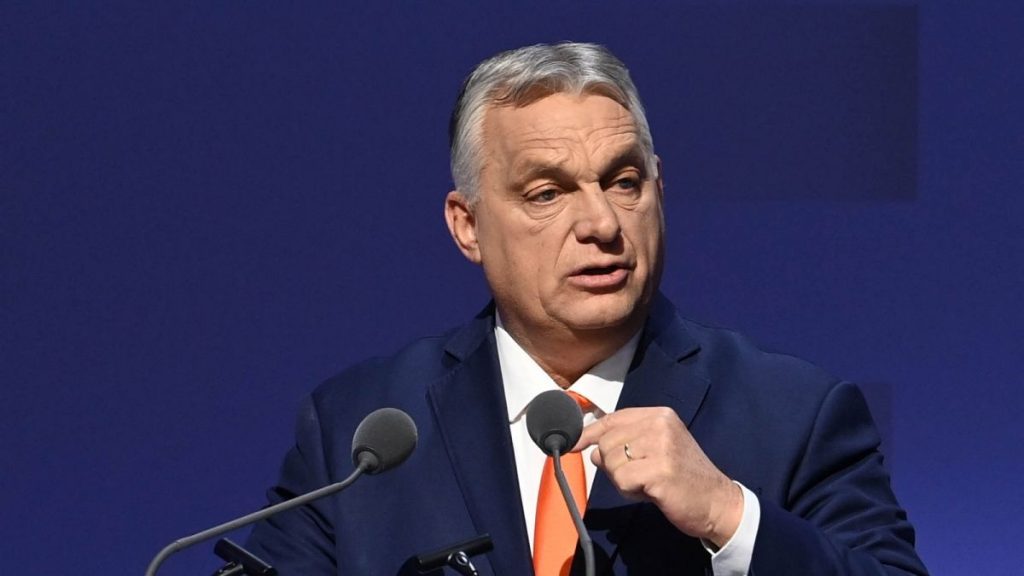Viktor Orbán, the Hungarian Prime Minister, delivered a scathing critique of the European Union’s direction, asserting that the bloc’s leadership is steering it towards isolation on the global stage. He posited that the EU has become detached from key players in the evolving world order, specifically citing the new US administration under President Trump, Russia, China, and Africa. Orbán expressed his anticipation of a significant political realignment, driven by the new US president and the burgeoning influence of right-wing factions within the European Parliament, particularly the Patriots for Europe. He believes these forces will collaborate to “reconstruct the Western world,” ushering in a new era of political priorities.
Orbán’s remarks, delivered at a conference in Budapest focused on Hungary’s recent EU presidency, painted a bleak picture of the EU’s future if its current trajectory remains unaltered. He warned that the bloc risks becoming a “loser” in the emerging global landscape, a fate he vehemently rejects for Hungary. He expressed strong admiration for President Trump, characterizing him as a “patriotic, pro-peace, pro-family, anti-migration” leader, suggesting that Trump’s presidency would fundamentally shift the dynamics within the EU. He contrasted this with what he described as the “sick man of Europe,” the EU itself, which he accused of failing to address critical issues such as European security, economic prosperity, illegal migration, and agricultural sustainability. He specifically pointed to the potential detrimental impact of Ukrainian EU membership on European farmers.
Orbán’s central argument revolves around the perceived disconnect between the EU bureaucracy in Brussels and the needs of its member states. He contended that the Brussels institutions, rather than serving the interests of its member states, are focused on consolidating their own power and expanding their bureaucratic reach. He characterized this as a drive towards a federalized Europe, overriding the sovereignty of individual nations. He dismissed the notion, prevalent within the EU institutions, that the bloc is functioning effectively, arguing that they are blind to the accumulating failures and the growing disconnect with the realities faced by member states.
The Hungarian Prime Minister advocated for a fundamental change within the EU, suggesting that this transformation could be achieved through political pressure, external challenges, and even internal conflict with Brussels. He positioned Hungary as an opponent of the Brussels system, challenging its authority and direction. He further accused the EU of being under the control of a “left-liberal and trans-Atlantic elite,” promoting a federalist agenda at the expense of national sovereignty. This elite, he claimed, orchestrates an oligarchic system that undermines the democratic principles of member states.
Orbán also leveled accusations against George Soros, the American billionaire investor, alleging that Soros finances a “united liberal front” that targets sovereigntist and patriotic movements. He claimed this front attacks those who advocate for the application of the rule of law and anti-corruption measures within the EU institutions. He further alleged that this front employs various tactics, including promises of positions, scholarships, and financial incentives, as well as threats of fines, sanctions, and even the revocation of voting rights, to silence dissent and maintain its control.
Finally, Orbán emphasized Hungary’s pursuit of economic neutrality, contrasting it with the EU’s expectations. He asserted that Hungary’s economy is thriving and that its approach to state administration and national identity represents a bold and innovative experiment on a global scale. He presented Hungary as a model for other nations seeking to navigate the complexities of the evolving global order while maintaining their national sovereignty and pursuing their own economic interests. This, he implied, is a path that diverges significantly from the direction being pursued by the EU, further highlighting the growing rift between Hungary and the bloc’s leadership.














